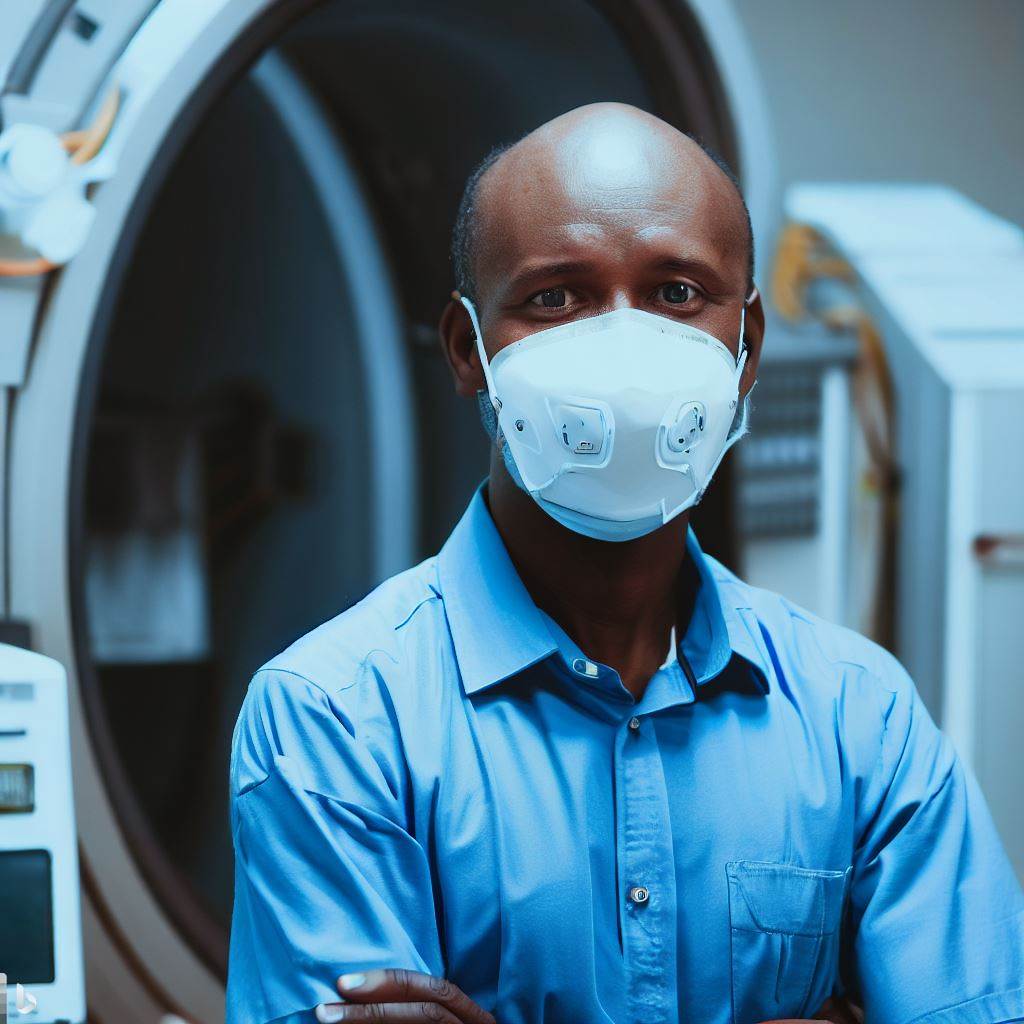Introduction
Optometrists are healthcare professionals who specialize in eye and vision care. Public health plays a crucial role in promoting and maintaining the well-being of the Nigerian population.
They contribute to the prevention, diagnosis, and treatment of eye conditions and diseases. Their work helps to improve the vision and quality of life for individuals in Nigeria. They also play a key role in providing primary eye care services to the Nigerian population.
They conduct eye examinations, prescribe glasses, and identify and manage eye diseases.
Optometrists help reduce the burden of preventable blindness and visual impairment. Their expertise improves early detection and timely intervention for eye conditions
They work closely with ophthalmologists, nurses, and community health workers. This multidisciplinary approach enhances public health interventions and eye healthcare service delivery.
These professionals are vital in addressing the growing eye healthcare needs of the Nigerian population. By recognizing their role and supporting their efforts, Nigeria can achieve better eye health outcomes.
Overview of the Nigerian Public Health System
The structure and organization of the public health system
- The Nigerian public health system is structured into three tiers – federal, state, and local governments.
- At the federal level, the Ministry of Health is responsible for overall coordination and policy formulation.
- State governments have their own ministries of health and oversee healthcare delivery in their respective states.
- Local government areas have primary health care facilities that provide basic health services to the communities.
The key healthcare stakeholders involved
- The federal government plays a crucial role in policymaking, resource allocation, and infrastructure development.
- State governments have the responsibility of implementing health programs and ensuring effective service delivery.
- Non-governmental organizations (NGOs) and international agencies provide technical and financial support for public health initiatives.
- Community-based organizations and traditional leaders play a significant role in mobilizing communities and promoting health awareness.
The challenges and gaps in the Nigerian public health system
- Inadequate funding poses a major challenge, as the public health system often suffers from insufficient resources.
- Limited access to quality healthcare services, especially in rural areas, leads to health disparities between urban and rural populations.
- The shortage of skilled healthcare professionals, including optometrists, hinders the delivery of comprehensive eye care services.
- Weak infrastructure, including healthcare facilities and medical equipment, hampers service provision and patient care.
- Poor health information systems and inadequate data collection hinder planning, monitoring, and evaluation of public health programs.
- Diseases such as malaria, HIV/AIDS, and maternal and child health remain significant public health concerns.
- Insufficient public health education and low health literacy levels among the population contribute to preventable health issues.
Basically, the Nigerian public health system is structured with the federal, state, and local governments working together.
However, it faces numerous challenges, including inadequate funding, limited access to quality healthcare, and a shortage of skilled healthcare professionals.
Addressing these challenges and gaps is crucial to improving the role of optometrists and promoting comprehensive eye care in the Nigerian public health system.
Read: Future of Optometry in Nigeria: Trends and Predictions
Understanding the Role of Optometrists
- Optometrists examine, diagnose, treat eye conditions, promote eye health, and offer comprehensive care, including vision correction.
- Eye health is vital for overall well-being, education, independence; untreated conditions burden individuals, families, and society.
- Optometrists contribute to Nigerian public health by providing primary care, early detection, education, referrals, community programs, advocacy.
Read: Success Stories of Nigerian Speech-Language Pathologists
Optometrists Addressing Vision Problems in Nigeria
The prevalence of vision problems in Nigeria:
- Nigeria has a high prevalence of vision problems, with millions suffering from various eye conditions.
- Uncorrected refractive errors, cataracts, glaucoma, and trachoma are the most common vision problems.
- Lack of awareness, limited access to eye care services, and poverty contribute to the high prevalence.
How optometrists diagnose and treat common eye conditions:
- Optometrists play a crucial role in diagnosing and treating vision problems in Nigeria.
- They conduct comprehensive eye examinations to identify refractive errors and other eye conditions.
- Optometrists prescribe corrective eyeglasses, contact lenses, or recommend eye surgeries as needed.
- They also provide specialized treatments for conditions like glaucoma and cataracts.
The impact of optometrists in preventing blindness and improving quality of life:
- Optometrists are instrumental in preventing unnecessary blindness in Nigeria.
- By diagnosing and treating vision problems early, they reduce the risk of permanent vision loss.
- Optometrists educate communities on the importance of regular eye exams and eye health practices.
- Through vision correction, they enhance the quality of life for individuals with impaired vision.
- Optometrists provide rehabilitative services to support visually impaired individuals in adapting to their condition.
In Nigeria, optometrists play a vital role in addressing vision problems and improving public health.
They work tirelessly to diagnose and treat various eye conditions, preventing blindness, and enhancing quality of life.
By increasing access to eye care services and raising awareness, optometrists contribute significantly to the overall well-being of the Nigerian population.
It is essential to recognize and support the critical role of optometrists in promoting eye health and combating vision problems in Nigeria.
Read: Nigerian Speech-Language Pathology: Regulatory Bodies and Ethics

Collaborations and Partnerships
Importance of Collaboration between Optometrists and other Healthcare Professionals
Collaboration between optometrists and other healthcare professionals is crucial for comprehensive patient care. Not all eye conditions can be managed solely by optometrists, so referrals to specialists are necessary.
Interdisciplinary collaboration ensures a holistic approach to healthcare, improving patient outcomes. Optometrists can work together with ophthalmologists, nurses, primary care physicians, and other specialists.
This collaboration allows for optimal eye healthcare delivery and coordinated management of various health conditions.
Successful Collaborations between Optometrists and Public Health Agencies in Nigeria
Optometrists have successfully partnered with public health agencies in Nigeria to address various eye health challenges.
Collaborations with the National Agency for the Prevention of Blindness have led to effective eye health programs.
Optometrists work closely with local health departments to provide vision screenings and eye health education in communities.
Partnerships with non-governmental organizations enable outreach programs to remote areas with limited eye care access.
Through these collaborations, optometrists have contributed significantly to preventive eye care and early intervention.
Read: How to Become a Medical Lab Technician in Nigeria
Benefits of Partnerships and Strengthening the Public Health System
Partnerships play a pivotal role in strengthening the public health system in Nigeria. Collaborating with optometrists enhances the capacity of public health agencies to deliver comprehensive eye care services.
Sharing resources, knowledge, and expertise leads to improved access to eye health services for all Nigerians.
Partnerships can leverage the strengths of each sector, resulting in more efficient and effective care delivery.
Collaborating with optometrists also helps public health agencies to identify and address emerging eye health issues promptly.
Essentially, collaboration between optometrists and other healthcare professionals is integral to the Nigerian public health system.
Successful partnerships with public health agencies have expanded access to eye care services and improved preventive care.
These collaborations strengthen the overall capacity of the public health system, benefiting the population at large.
By working together, healthcare professionals can address eye health challenges and contribute to improved patient outcomes.
Read: Role of Speech-Language Pathologists in Nigerian Schools
Delve into the Subject: Exploring Nigeria’s Pediatric Physical Therapy Scene
Challenges and Opportunities for Optometrists in Nigerian Public Health
Challenges optometrists face in contributing effectively to public health
- Limited awareness and understanding of the role of optometrists in public health.
- Inadequate access to eye care services in rural and underserved areas.
- Lack of funding and resources for comprehensive eye care programs and interventions.
- Shortage of trained optometrists and other eye care professionals in Nigeria.
- Stigma and myths surrounding eye health, leading to late diagnoses and treatment.
- Underutilization of optometrists due to the dominance of ophthalmologists in the healthcare system.
- Limited integration of optometry into the primary healthcare system.
- Inefficient referral systems and poor coordination among healthcare providers.
- Lack of standardized protocols and guidelines for optometrists in public health settings.
- Inadequate government support and policies to prioritize eye health in public health agendas.
Opportunities for optometrists to make a greater impact in Nigerian public health
- Advocating through campaigns and education.
- Expanding rural access via mobile clinics.
- Strengthening partnerships for collaborative care.
- Implementing telemedicine for remote communities.
- Developing prevention-focused eye care programs.
- Advocating for increased funding and resources.
- Promoting interdisciplinary training and collaboration.
- Integrating optometry into primary healthcare through policy reforms.
- Establishing standardized protocols and guidelines.
- Collaborating with government agencies for national prioritization.
Challenges include limited awareness, access, funding, and myths. Optometrists’ integration and utilization need improvement for impact.
Opportunities lie in raising awareness, expanding access, leveraging technology, collaboration, and advocating for resources and policies.
Optometrists can contribute significantly to public health and address vision challenges in Nigeria.
Read: Step-by-step Guide to Becoming a Nursing Assistant in Nigeria
Conclusion
Optometrists play a crucial role in Nigerian public health by providing eye care services. The importance of optometrists in improving access to eye care services cannot be underestimated.
It is essential to collaborate and support efforts in strengthening the role of optometrists in Nigerian public health. Together, we can make a difference in eye health for all Nigerians.




